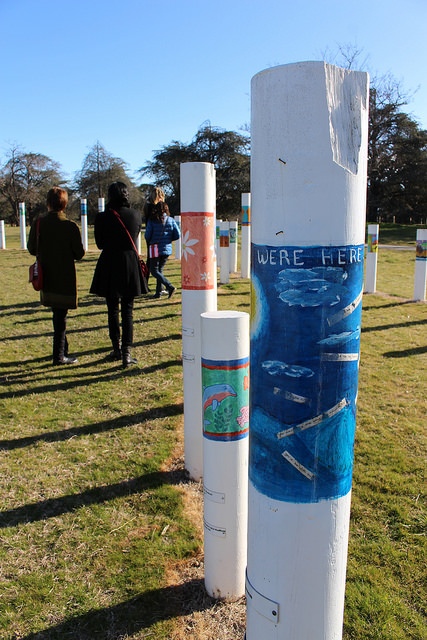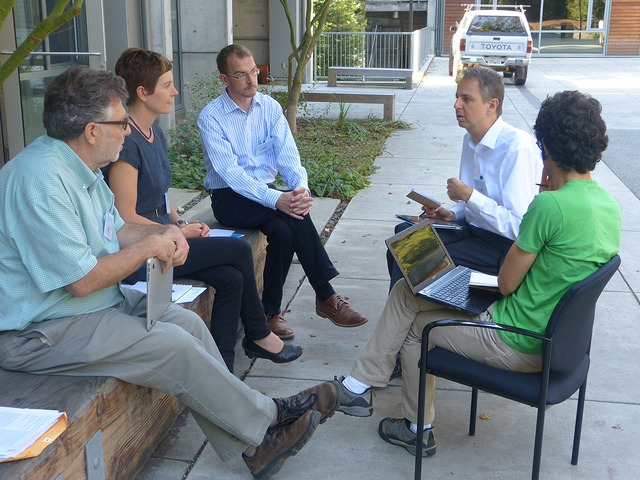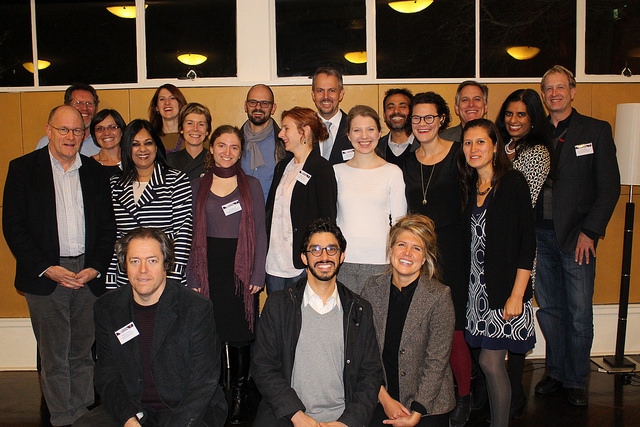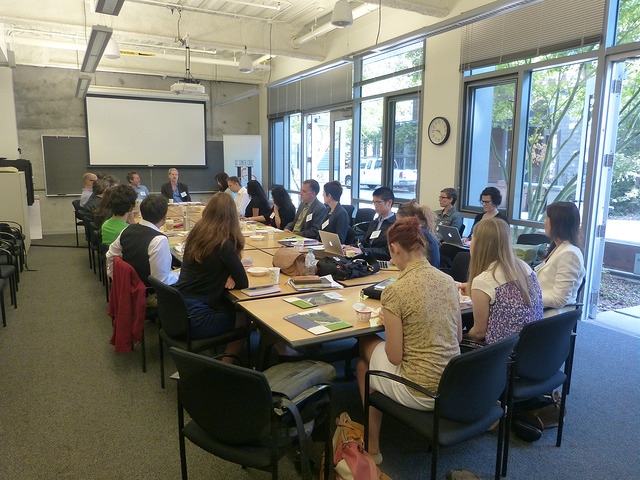Integrative Graduate Humanities Education Research and Training (IGHERT)
An Initiative supported by the Andrew W. Mellon Foundation
Back to ProgramsThe IGHERT project brought together four CHCI-member organizations to engage graduate students in a series of collaborative training and research activities to test, refine, and assess a scalable model of skill training and digital archiving that can be applied in multiple contexts and to multiple themes. The participating organizations were:
- Institute for Humanities Research (University of California, Santa Cruz)
- Center for 21st Century Studies (The University of Wisconsin-Milwaukee)
- International Graduate Centre for the Study of Culture (Justus Liebig University, Giessen)
- Humanities Research Centre (Australian National University, Canberra)
The IGHERT program further aimed to attune the participants to the larger public contexts in which expert knowledge in the humanities is meaningful and to equip them with the written and oral skills necessary to communicate with these public constituencies more effectively.

UC Santa Cruz’s Institute for Humanities Research (IHR) was the designated project hub for IGHERT. The project website can be viewed here: https://ighert.sites.ucsc.edu/
The IGHERT timeline included a plenary meeting for all collaborators to be hosted by each of the four centers in turn.
Each workshop included the following elements, expressed differently as appropriate to the location:
- shared readings provided by the host center;
 IGHERT Santa Cruz meeting, 2014
IGHERT Santa Cruz meeting, 2014 - panels in which the graduate students had the opportunity to present their work;
- related conferences, talks, and exhibits showcasing locally embedded indigeneities (e.g., Ojibwe poetry and “Native” subjects in Milwaukee, Aboriginal art and its relationship to museums in Australia, etc.) and theoretical approaches to indigeneities prevalent in the host country and region;
- writing workshops in which the graduate students worked on particular problems in their dissertations with advisors from outside their discipline and/or location; and
- a training exercise in which the graduate students were filmed giving a pithy “elevator speech” on their scholarship.
The first (Santa Cruz) plenary session/workshop (September 19-20, 2014) explored the project subtopic of “Stories / Memories / Histories” as aspects of indigeneity, introduced the researchers to the aims and activities the project as a whole, offered intensive opportunites for the researchers to get to know one another and each other’s research interests, and provided opportunities for the project group to plan subsequent events and collaborative communications in more detail. (The schedule of activities for this workshop was included in the first interim report.)

The theme of the third plenary meeting, which took place at the University of Wisconsin-Milwaukee (May 8-9, 2016), was “Human and Non-Human Belonging." At that meeting, IGHERT graduate students had the opportunity to participate in an associated conference, ““Landbody: Indigeneity’s Radical Commitments,” in which most of them gave presentations, and to interview in the campus television studio in which the students’ experience with filmed “elevator speech” exercises.

The final meeting, hosted by the Justus Liebig University, Gießen (November 14-17, 2016), focused on “Territories / Spaces / Environments” as these relate to the theme of indigeneity in Europe. An opening session with Principal Investigator Ansgar Nünning shared theoretical approaches concerning the idea of “traveling” that are important to German scholarship and pertinent to the study of indigeneities. Like the other IGHERT workshops, the meeting included intensive one-on-one advising sessions on the dissertations in progress and a filmed exercise in public communication of one’s scholarly work.